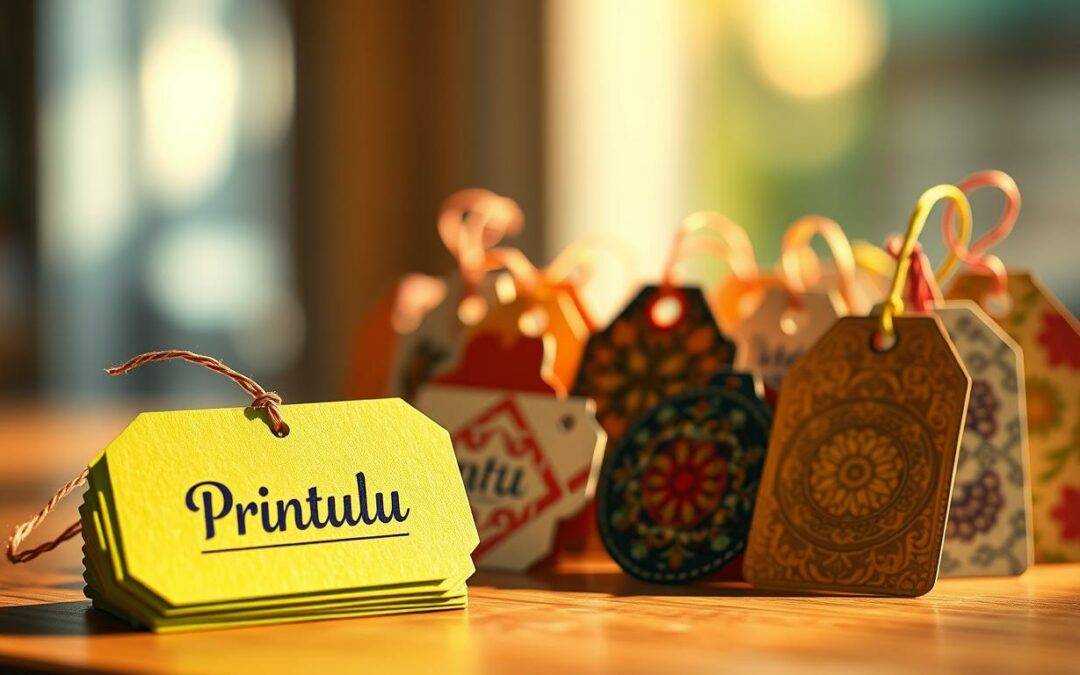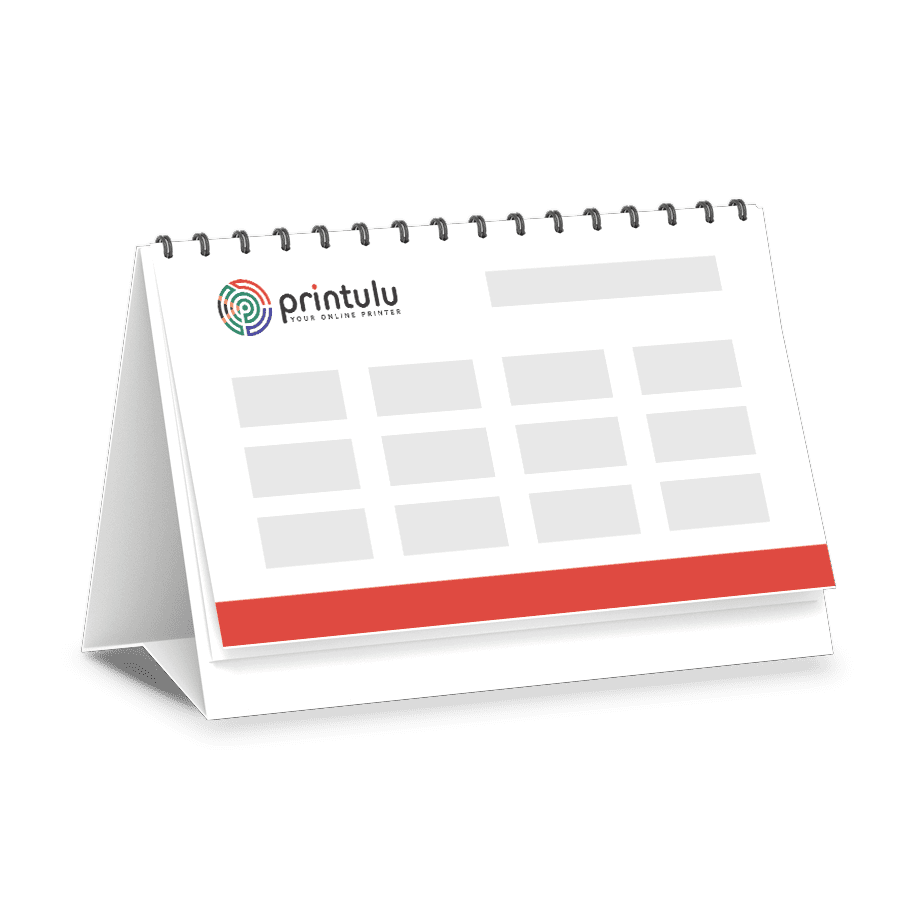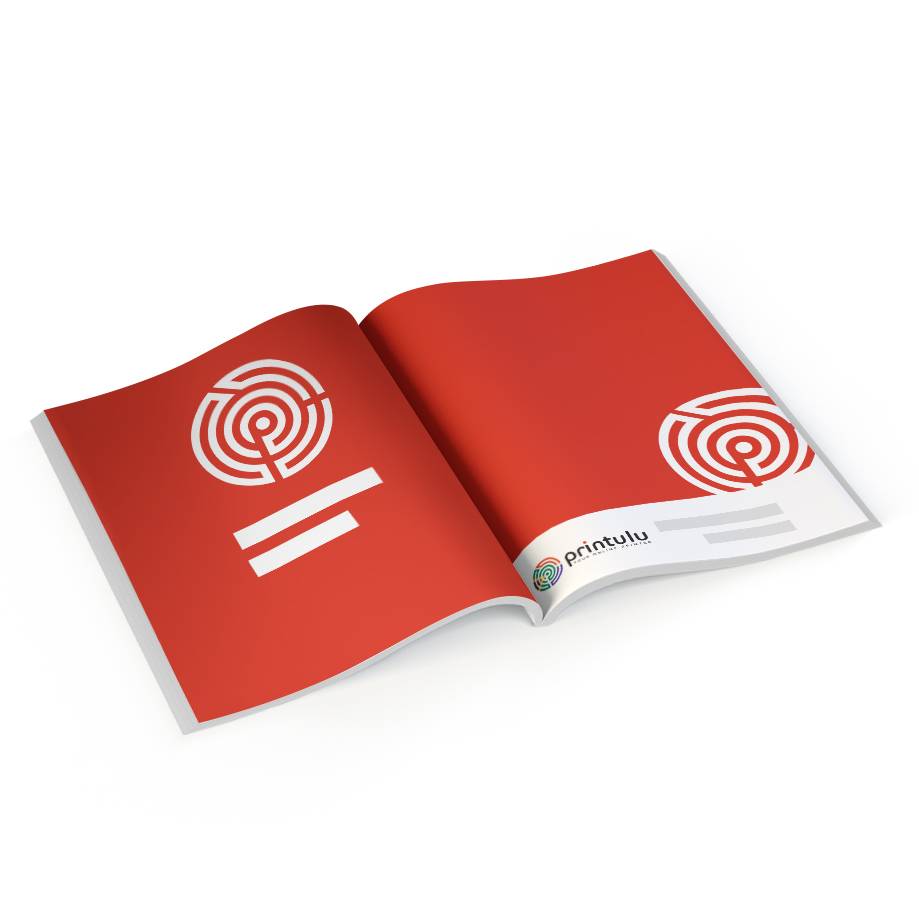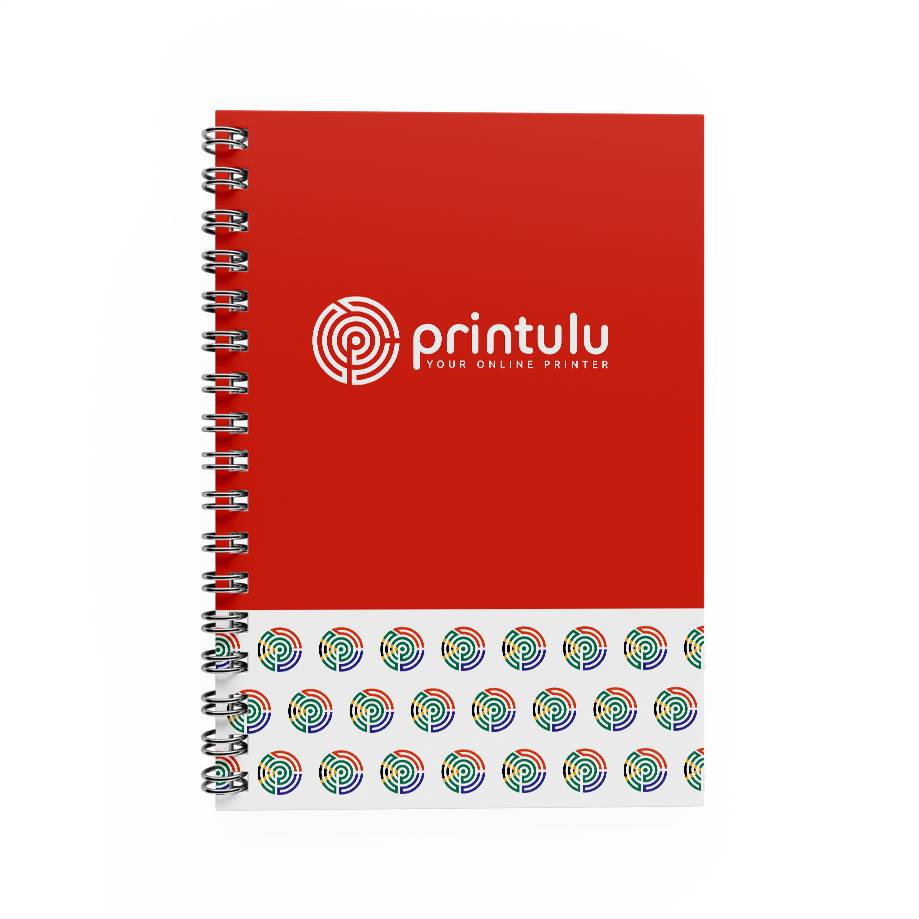In South Africa’s competitive market, custom labels are more than just identifiers. They are key tools for brand recognition. Eye-catching paper tags can be a big help in grabbing consumer attention.
Good label design is not just about looks. It’s about combining function with attractive visuals. This guides customers towards buying. Using tools like Adobe Illustrator can help create top-notch designs.
It’s important to get the size of paper tags right. This avoids extra costs and meets rules. Remember, details like bleed area and CMYK colours are crucial for avoiding printing errors.
Your paper tags should stand out on the shelf. They should clearly say what they mean. They should also be flexible in size for different uses.
Key Takeaways
- Use a safe margin of 1/8″ or 1/16″ to protect important graphics from misalignment.
- Choose the right bleed in your designs for full coverage and to avoid printing issues.
- Go for borderless designs to improve precision and look.
- Try a trial print to spot design and alignment problems before final production.
- Use dynamic designs to boost print accuracy and beauty.
- Realise how new label designs can sway customer buying choices.
- Keep branding consistent across all labels for quick product recognition.
Understand Your Target Audience
To make great paper tags, knowing your customers well is key. It’s not just about who they are but also what they like and do. In South Africa, 76% of people like brands that get their marketing right for them.
Who might use your paper tags? Maybe it’s women aged 25-40 who care about the planet. If so, your tags could be made from eco-friendly stuff. This way, you speak to what they value and live by.
Research Your Customers’ Preferences
People of different ages and money levels like different things. Young folks might like bright, new designs. Older people might prefer calm, classic ones. Using data from social media and surveys helps you make products they’ll love.
Analyze Competitors’ Designs
Looking at what others do is very important. It shows you what works and what doesn’t. This helps you make your tags stand out. For example, if others use square tags, a unique shape can make yours pop.
Good market research is the backbone of great product design. It makes sure your tags match what people want and what’s popular. This boosts how much people like your brand in South Africa.
Choose the Right Material for Your Paper Tags
When making paper tags, picking the right materials is key. It’s about material selection, sustainable paper, and eco-conscious branding. These choices make your tags look good, last long, and show you care about the planet.
Opt for Eco-Friendly Options
Nowadays, many choose sustainable paper for tags. Kraft brown paper, made from 100% recycled stuff, is popular. It’s good for the planet and looks natural.
Uncoated paper has a soft, natural look. It’s great for writing and adds a rustic feel to your tags.
Consider Durability and Quality
Tags need to be tough, like business cards. Look for materials like 350gsm for strength. They keep your tags durable and looking sharp.
Adding laminates or varnishes makes tags last even longer. They look better too, meeting both looks and function needs.
For more info on paper for business cards, check out this resource. It talks about cost-effective, high-quality options.
Choosing the right paper tags is important. Whether you pick shiny metallic labels or green estate paper, it should fit your brand. It should also meet what your customers want, making your products stand out and show your brand’s green side.
Focus on Eye-Catching Colors and Patterns
In the world of paper tags, using colour theory and design trends can really make your product pop. Choosing bold colour mixes and standout patterns grabs attention. It also shows what your brand is all about, making it stand out in South Africa’s busy markets.
Knowing about colour theory can change the game in picking patterns. It’s not just about looks; colours affect feelings and actions. So, picking colours that match your audience’s feelings is key. This can really get people interested in your product, with studies showing a 92% boost in interest.
A good colour mix can make your paper tags look amazing. It’s important to pick colours that fit your brand and send the right message. Here’s a table with some top colour pairs and their hex codes to help you make eye-catching designs:
| Colour Combination | Hex Codes |
|---|---|
| Ultimate Gray & Illuminating | #949398FF & #F4DF4EFF |
| Living Coral & Pacific Coast | #FC766AFF & #5B84B1FF |
| Ultra Violet & Blooming Dahlia | #5F4B8BFF & #E69A8DFF |
| Turquoise & Warm Sand | #42EADDFF & #CDB599FF |
| Black & White | #000000FF & #FFFFFFFF |
| Blue & Orange | #00A4CCFF & #F95700FF |
Select a Colour Palette that Resonates
Choosing the right colours is more than just picking your favourites. It’s about thinking about trends, culture, and how colours make people feel. For example, blue is trusted, red is exciting, and green is peaceful. These feelings can make people want to buy your product.
Explore Unique Patterns and Textures
Adding special patterns and textures to your tags can make them stand out. The right patterns can make people remember your brand. Textures, whether seen or felt, make the tag more interesting, making it a fun experience for the customer.
In short, picking the right colours and patterns is key to making paper tags that catch the eye and connect with people. This can lead to more engagement and sales.
Use Engaging Typography and Fonts
The art of typography design has changed a lot since the 11th century. It now affects both digital and print media. Good typography in paper tag design makes things easier to read and boosts brand image. It’s key for grabbing people’s attention.
By mixing creative fonts with clear ones, and playing with typographic hierarchy, you can change your tag designs for the better.
Balance Readability with Creativity
Typography should grab attention but also be easy to read. Good typography keeps people on websites for up to 30 minutes. This can lead to more sales.
Using no more than three fonts helps avoid clutter. This keeps your design clean and focused.
Experiment with Font Sizes and Styles
Changing font sizes and styles helps guide the viewer’s eye to key points. It also shows off your brand’s identity. Elements of font pairing and typographic hierarchy make important info stand out. This is great for people who don’t like to read much.
| Design Element | Impact on User Engagement |
|---|---|
| Typography as a Brand Cue | Increases brand recognition by up to 80% |
| Readability in Design | 75% prefer easy-to-read fonts, indicating higher user engagement |
| Font Pairing | Improves perceived brand personality; essential for brand consistency |
| Impact of Creative Fonts | Decorative fonts boost creativity; 45% of brands use them in logos |
For printed content, serif fonts are best because they help with reading. Sans serif fonts are better for digital stuff because they look modern and clean. This meets what people expect today.
Incorporate Compelling Copy on Your Paper Tags
Using persuasive copywriting and brand messaging on paper tags is key. It’s not just about looks; it’s about making connections and getting people to act. In today’s world, your tags are a direct way to reach customers, making clear communication vital.
This design aspect is crucial. It helps bridge the gap between what your brand wants and what customers do. It turns people who just look into those who take action.
Write Clear and Concise Messaging
When creating content for paper tags, aim for messages that are short and powerful. With little space, each word must count. It should tell a story that speaks to your audience.
This might highlight what makes your product special or show what your brand stands for. Research shows that clear, short messages help people understand and remember better. This is key for keeping customers interested.
Add a Call to Action for Enhanced Engagement
A good call to action (CTA) is essential for any marketing piece, including paper tags. It should tell customers what to do next, like visit a website or scan a QR code. A strong CTA makes the customer’s journey better, leading to more sales and loyalty.
Adding these elements to your tags makes them more than just pretty. It helps your brand stand out in people’s minds and actions. About 70% of shoppers prefer learning about products through engaging content, not ads. This shows how important great copy is, even on small marketing pieces.
Leverage Unique Shapes and Sizes for Impact
Looking into innovative tag shapes and custom-sized labels can really boost a product’s look on the shelf. Choosing unique shapes or sizes is key. It’s not just about being different. It’s about how these shapes fit with good design and usability.
Experiment with Non-Traditional Shapes
Tags can be round, triangular, or even shapes that aren’t rectangles. This makes your product stand out. It’s a way to grab people’s attention on crowded shelves.
Consider Practicality and Usability
But, being creative isn’t everything. Your tags must also be practical. They should look good and be easy to use. They should stay in shape when people handle them.
| Tag Shape | Advantages | Common Uses |
|---|---|---|
| Oval | Smooth and professional appearance | Beauty products, gourmet foods |
| Triangle | Eye-catching and points direction | Outdoor equipment, educational products |
| Pentagonal | Associates with premium products | Luxury goods, exclusive releases |
Making tags both useful and attractive is hard. But, it’s worth it. The right design makes tags a key part of your product’s look.
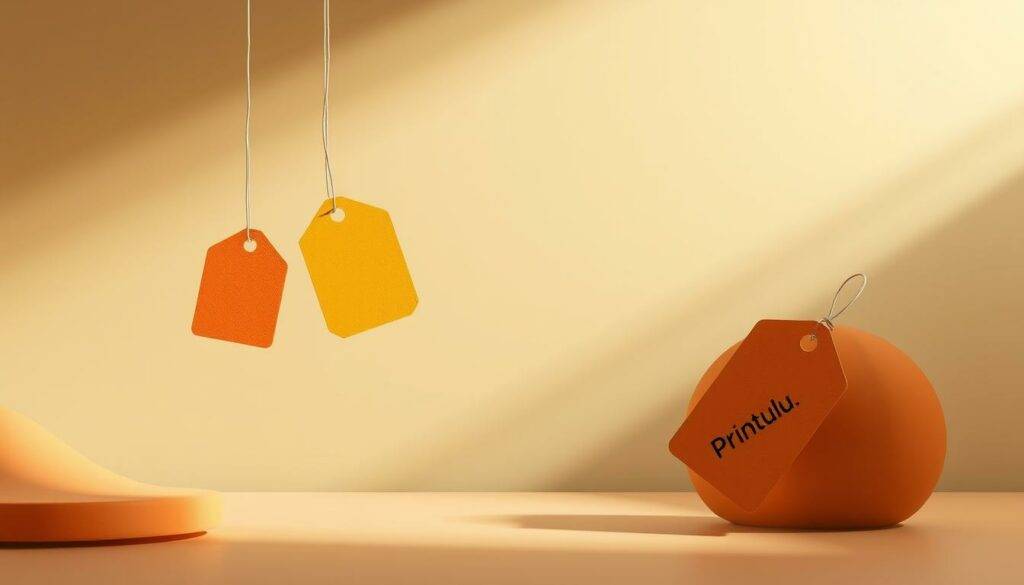
Include Branding Elements Thoughtfully
Adding branding elements to your designs is key. It affects how people see and act towards your brand. Using logos and brand colors well helps your brand stand out. This builds trust, which is crucial in a competitive market.
Showcase Your Logo and Brand Colors
Your logo shows what your brand is all about. Putting it in the right places on your marketing materials makes a big difference. Using the same colors also helps people remember your brand. It tells them about your brand’s values and personality.
Ensure Consistency Across All Marketing Materials
Using the same brand elements everywhere makes things smooth for your customers. Make a detailed design checklist to keep everything consistent. This makes your brand look polished and strong in the South African market.
Here’s a table showing how consistent branding helps:
| Element | Impact on Brand Consistency (%) | Consumer Trust Increase (%) |
|---|---|---|
| Logo Use | 85 | 60 |
| Color Consistency | 90 | 70 |
| Inclusive Branding across All Marketing Collateral | 95 | 80 |
In short, paying close attention to your marketing materials can really change your business’s fortunes.
Use Innovative Techniques for Visual Appeal
The modern market wants quality and visual innovation to keep customers interested. Businesses use creative techniques to make their products look and work better. Foil stamping and embossed tags are great for adding luxury and feeling.
Consider Foil Stamping or Embossing
Foil stamping makes products shine and can make them seem more valuable. It can make a product seem 20% more valuable. Embossed tags give a special feel and can grab attention by 25%.
Using foil stamping with embossing makes products look fancy. This draws eyes and makes people want to touch them. It makes customers more interested in the product.
Add Interactive Elements if Possible
Brands are making products more interactive. Augmented reality printing can make a simple tag into an exciting experience. It can increase engagement by up to 60%.
Thermochromic printing changes colors or patterns with temperature. This makes products more interesting and interactive.
To learn more about these techniques, read about foil stamping techniques.
| Technique | Visual Appeal Increase | Engagement Boost | Consumer Purchase Intention |
|---|---|---|---|
| Foil Stamping | High | Up to 20% | 30-35% |
| Embossing | High | 25% | Sizable Influence |
| Interactive Designs (e.g., AR) | Moderate to High | 60% | Stimulates Enhanced Interaction |
Test and Iterate Your Designs
Designing paper tags is a journey, not a final goal. In South Africa’s market, launching without testing is like sailing without a compass. Testing is key to the design process.
Starting with design testing and iteration early saves money. Prototyping is cheaper at the beginning. It helps make changes before the final product, saving costs.
Gather Feedback from Focus Groups
First impressions from different customers are very important. They help you understand your audience in South Africa. Even simple sketches can start the feedback loop.
This approach is low-risk. If an idea doesn’t work, you can change it easily without losing a lot of money.
Make Data-Driven Adjustments for Improvement
The iterative design process quickly fixes mistakes, saving time and money. It’s not just about fixing things; it’s about learning and growing. Using data to improve your project helps it get better over time.
Wikipedia is a great example of this. It changes based on user feedback. In South Africa’s market, being able to adapt is crucial. It makes your paper tag designs stand out and last.
FAQ
How can I design eye-catching paper tags for my brand?
First, know who you’re making tags for. Pick the right materials and colours. Use interesting fonts and words.
Make sure your tags show off your brand. Keep trying new things based on what people say.
What should I consider when selecting colour schemes for my paper tags?
Choose colours that match your brand’s values. Look at colour theory and trends. This will help your tags catch people’s eyes.
How can I ensure my paper tags appeal to the South African market?
Do your homework on what people like. Make tags that fit what your customers want. Think about being green too.
What are some innovative techniques to enhance the visual appeal of paper tags?
Try foil stamping and embossing for a fancy feel. Add interactive bits to make tags fun to use.
Why is it important to use eco-friendly materials for paper tags?
Green paper shows you care about the planet. It also wins over people who like to save the environment.
How does typography affect the effectiveness of paper tags?
Fonts can make your tags easy to read and look good. Choose fonts that are creative but clear. This helps your brand look sharp.
Why is it crucial to include a call to action on paper tags?
A call to action gets people to do something. It could be to learn more or buy. It’s key for connecting with your audience.
In what way does brand consistency across marketing materials affect paper tags?
Being consistent with your brand makes people trust you. It helps them remember you. This builds loyalty.
How can I ensure my paper tags are both unique and practical?
Be creative with shapes and sizes. But remember, they must be easy to use. Don’t forget about attaching them.
What is the importance of testing and refining paper tag designs?
Get feedback and make changes based on it. This makes sure your tags work well with your audience. It’s all about making them better.
Source Links
- Creating Stunning Personalized Round Labels: 5 Expert Tips – https://altrolabels.com/blog/creating-stunning-personalized-round-labels-5-expert-tips/
- 5 Ways to Make Your Spirits Label Stand Out – AWT Labels & Packaging – https://awtlabelpack.com/5-ways-to-make-your-spirits-label-stand-out/
- 5 Common Low-Fidelity Prototypes and Their Best Practices – https://www.interaction-design.org/literature/article/prototyping-learn-eight-common-methods-and-best-practices?srsltid=AfmBOorefSz5aPQSBqflMRRzRVFp_QrSPiGrXIuaYuWOHiKqUnLegcIF
- Defining Your Target Audience: Showcasing with Examples | Sender – https://www.sender.net/blog/target-audience/
- Target Audience: My Tips for Finding the Perfect Fit [+ 5 Campaign Examples] – https://blog.hubspot.com/marketing/target-audience
- Printing – The Complete Guide – https://printing.printulu.co.za/paper-grammage-guide/
- Choosing the Right Label Material – https://www.avery.com/blog/choosing-the-right-label-material/
- How to Choose the Right Paper & Finishes for Print Projects – https://littlerockprinting.com/choosing-paper-and-finishes-for-printing-projects/
- Discover the Perfect Color Combinations: 80 Eye-Catching Trends – https://designwizard.com/blog/colour-combination/
- How to Design Eye-Catching Product Labels? – https://www.48hourprint.com/how-to-design-eye-catching-product-labels.html?srsltid=AfmBOoqvn1NZI8mJYhQdiBtVe7g9OM0WvIs1GQhAu_TZfJU6iUdTQJun
- Typography: What is it? The Complete Guide for 2025 – https://careerfoundry.com/en/blog/ui-design/beginners-guide-to-typography/
- Mastering Brand Typography and Fonts – https://www.clashgraphics.com/printing-tips/mastering-brand-typography-and-fonts/?srsltid=AfmBOorY7R4YXIGq0GxoykDEsbEg4GJgsjpBG081lCxA95CRd1ciX9Fd
- Typography in Flyers: Choosing Fonts for Flyers – Printulu – Your Online Printer – https://printing.printulu.co.za/typography-in-flyers-choosing-fonts-for-flyers/
- How To Write Great Meta Descriptions And Title Tags – betweenthelinescopy.com – https://betweenthelinescopy.com/blog/how-to-write-meta-description/
- How to Write Copy for ANY Page on Your Website – Copywriter for Creative Business Owners | – https://jessicajordana.com/how-to-write-copy-for-any-page/
- Leverage Points: Places to Intervene in a System – https://donellameadows.org/archives/leverage-points-places-to-intervene-in-a-system/
- Barcode Labels and Tags | Zebra – https://www.zebra.com/ap/en/products/supplies/labels-tags.html
- The Complete Guide to Printing Paper Sizes – https://colourgraphics.com/blog/the-complete-guide-to-printing-paper-sizes/
- All About Product Labels: Parts, Types, Design Strategies – https://meyers.com/meyers-blog/all-about-product-labels/
- Labels and Tags you Should know to Start A Clothing Brand | Fashion Soul International Pvt Ltd – https://fashionsoulintl.com/labels-and-tags-for-clothing-brands/
- Enhancing Product Appeal with Innovative Label Printing Solutions – https://www.linkedin.com/pulse/enhancing-product-appeal-innovative-label-printing
- Top 10 Innovative Printing Techniques to Enhance Your Marketing Materials – https://www.linkedin.com/pulse/top-10-innovative-printing-techniques-enhance
- Design Iteration Brings Powerful Results. So, Do It Again Designer! – https://www.interaction-design.org/literature/article/design-iteration-brings-powerful-results-so-do-it-again-designer?srsltid=AfmBOorQxYAxP96nI4Jdcn5Aea0vq3L-bHFNgLu983T0xDhTs_GzgF8a
- What is a Project Sponsor? Breakdown of Roles & Duties [2025] • Asana – https://asana.com/resources/iterative-process

